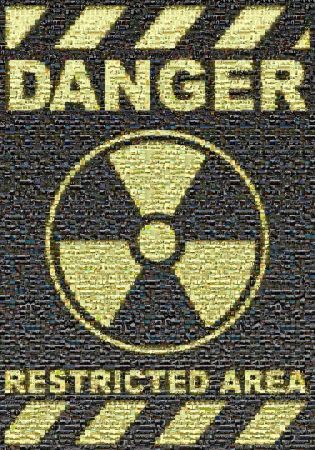
Publisher:
Bonnie King
CONTACT:
Newsroom@Salem-news.com
Advertising:
Adsales@Salem-news.com

~Truth~
~Justice~
~Peace~
TJP
Feb-07-2014 11:52

 TweetFollow @OregonNews
TweetFollow @OregonNews
Reactor Reax Top Stories - Exelon to Decide by Years End on Illinois Nuke Closures
Salem-News.comThe latest roundup of stories about nuclear energy.
 deviantart.com |
(WASHINGTON, DC) - Tick tock: Exelon to decide by year's end on Illinois nuke closures, Chicago Business, February 6, 2014. "The clock is now ticking for Exelon Corp.'s Clinton and Quad Cities nuclear power plants. CEO Chris Crane said the company would have to decide by year-end on whether to shutter nuclear facilities that currently are losing money due to persistently low wholesale power prices. Analysts have identified the downstate Clinton plant and Quad Cities as the two in Illinois that fit this description. Exelon runs six nukes in Illinois."
Westinghouse backs off small nuclear plants, Pittsburgh Post-Gazette, February 1, 2014. "After millions of dollars and more than a decade spent developing a small modular nuclear reactor, Westinghouse Electric Co. is pulling back. Danny Roderick, president and CEO of the Cranberry-based nuclear firm, said Westinghouse recently 'reprioritized' staff devoted to small modular reactor, or SMR, development and funneled their efforts to the AP1000, the company's full-scale new generation pressurized water reactor currently under construction in China and the U.S. 'The problem I have with SMRs is not the technology, it's not the deployment -- it's that there's no customers,' Mr. Roderick said. 'The worst thing to do is get ahead of the market.' The move comes after Westinghouse was twice snubbed by the U.S. Department of Energy's SMR commercialization program, which awarded cost-sharing arrangements to two other companies. Westinghouse still is interested in the development of SMRs, he said, and the company will eventually file an application with the NRC as the market dictates. But for now it is spending its energy in parts of the company with greater economic potential. For example, the company is looking to triple its decomissioning business, which helps safely dismantle nuclear plants.
Nuclear power project financing option sticks ratepayers with tab, Indianapolis Star, February 1, 2014. "Who pays the bill when the cost of a nuclear power project goes wildly over budget? Thirty years ago — the last time this question came up in Indiana — the answer was clear: The utility would swallow the cost. And it did. Public Service Indiana nearly went bankrupt in 1984 when construction costs soared to $2.5 billion at its Marble Hill Nuclear Power Station in southern Indiana. The distressed company pulled the plug. The half-built plant was later dismantled and sold for parts. But that could change. Around the country, including in Indiana, a move is growing to shift up-front costs of potential nuclear power projects from utilities to ratepayers. So when construction costs soar, as they often do, it's not the utility, but homeowners, shops and steel mills that keep paying the tab. The idea was floated here earlier this month by state Sen. James Merritt, powerful chairman of the Senate Utilities Committee. Merritt introduced a bill that would allow utilities to build a nuclear power plant, or a new, smaller generation of nuclear generators called small modular reactors, and pass along the engineering and construction costs to customers years before the plant goes into operation."
Are small nuclear reactors the answer?, Bulletin of the Atomic Scientists, January 29, 2014. "In the realm of nuclear technology, however, the enormous expense required to launch a new model as well as the built-in dangers of nuclear fission require a more straightforward relationship between problem and solution. Small modular nuclear reactors may be attractive, but they will not, in themselves, offer satisfactory solutions to the most pressing problems of nuclear energy: high cost, safety, and weapons proliferation."
Nuclear power is not the answer to climate change mitigation, Green World, February 5, 2014. "As the country that experienced the Fukushima nuclear accident, Japan may be unique in that it that lacks governance capability in various aspects. However, it is still one of the most economically developed countries in the world with a comparatively democratic political system. Japan is a nation that used to take pride in having 'the world's highest level of safety' throughout its 40 odd years of operating nuclear power plants. On the other hand, many of the countries now wishing to build nuclear power plants anew are not economically rich, and frequently are under non-democratic regimes. Considering the risks and costs of building new nuclear power plants in such countries, it is questionable, and even fearful, that the international community is about to allow the promotion of nuclear power generation as a climate change measure."
"Reactor Reax" is featured on www.NuclearBailout.org, a Web site maintained by Physicians for Social Responsibility. For more information, contact reactorreax@nuclearbailout.org
 |
 |
 |
Articles for February 6, 2014 | Articles for February 7, 2014 | Articles for February 8, 2014



Salem-News.com:

Quick Links
DINING
Willamette UniversityGoudy Commons Cafe
Dine on the Queen
Willamette Queen Sternwheeler
MUST SEE SALEM
Oregon Capitol ToursCapitol History Gateway
Willamette River Ride
Willamette Queen Sternwheeler
Historic Home Tours:
Deepwood Museum
The Bush House
Gaiety Hollow Garden
AUCTIONS - APPRAISALS
Auction Masters & AppraisalsCONSTRUCTION SERVICES
Roofing and ContractingSheridan, Ore.
ONLINE SHOPPING
Special Occasion DressesAdvertise with Salem-News
Contact:AdSales@Salem-News.com
Terms of Service | Privacy Policy
All comments and messages are approved by people and self promotional links or unacceptable comments are denied.
[Return to Top]
©2026 Salem-News.com. All opinions expressed in this article are those of the author and do not necessarily reflect those of Salem-News.com.